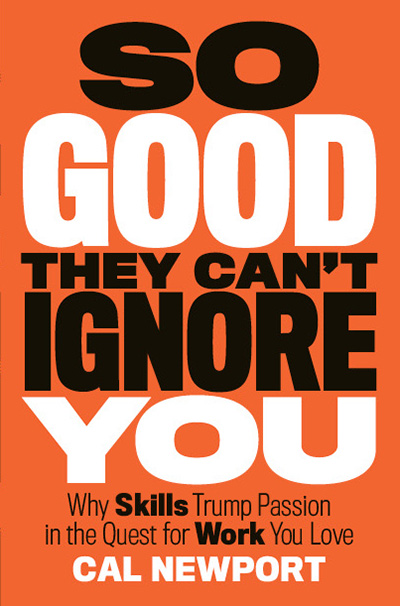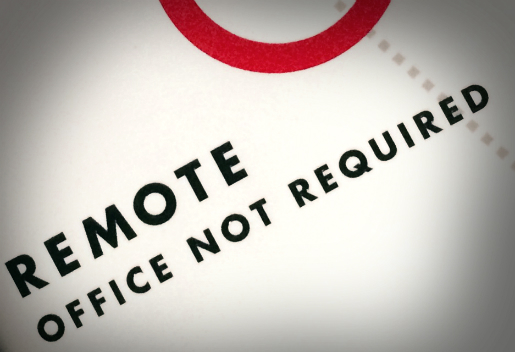
Here are my notes from So Good They Can’t Ignore You by Cal Newport.
Two different approaches to thinking about work:
- The passion mindset: focus on what value your job offers you (most people approach their working lives in this way)
- The craftsman mindset: focus on what value you’re producing in your job
The passion mindset
Two drawbacks:
- When you focus only on what your work offers you, that means you’re tuned into what you don’t like about your work, which leads to unhappiness.
- The passion mindset drives two serious questions: Who am I? and What do I truly love? Both of these are “essentially impossible to confirm.” So this leads to unhappiness, too.
“The traits that define great work are bought with career capital […] they don’t come from matching your work to your innate passion. Because of this, you don’t have to sweat whether you’ve found your calling—most any work can become the foundation for a compelling career.”
The craftsman mindset
In the craftsman mindset, you focus on skills that help you do your job better. If you’re a musician, that means tedious practice—an obsession on the quality of what you produce, because quality trumps appearance, equipment and personality.
Three traits that disqualify a job as providing a good foundation for building work you love (it’s difficult to apply the craftsman mindset in these circumstances):
- The job presents few opportunities to distinguish yourself by developing relevant skills that are rare and valuable.
- The job focuses on something you think is useless or perhaps evenly actively bad for the world.
- The job forces you to work with people you really dislike.
Deliberate practice
Feels like a “stretch”. “If you’re not uncomfortable, then you’re probably stuck at an ‘acceptable level.'” You have to push past what’s comfortable and also embrace honest feedback, “even if it destroys what you thought was good.”
Results Only Work Environment (ROWE)
Results are the only thing that matters — no results, no job. It’s up to the employee to figure out how to do important work. “When you show up to work, when you leave, when you go on vacation, and how often you check email are all irrelevant.” Lets employees feel in control. Level of happiness goes up. Employee engagement goes up.
The Second Control Trap
“The point at which you have acquired enough career capital to get meaningful control over your working life is exactly the point when you’ve become valuable enough to your current employer that they will try to prevent you from making the change.”
This is because acquiring more control in your working life benefits you, the employee, but probably doesn’t benefit your employer.
The Law of Financial Viability
“When deciding whether to follow an appealing pursuit that will introduce more control into your work life, seek evidence of whether people are willing to pay for it. If you find this evidence, continue. If not, move on.”
Little bets
Make little bets. Test ideas. Fail quickly, learn from what happened, and move on.
Little bets have the following traits:
- A project that’s small enough to be completed in less than a month
- Forces you to create new value (new skill, produce something new)
- Produces a concrete result that you can use to gather feedback

